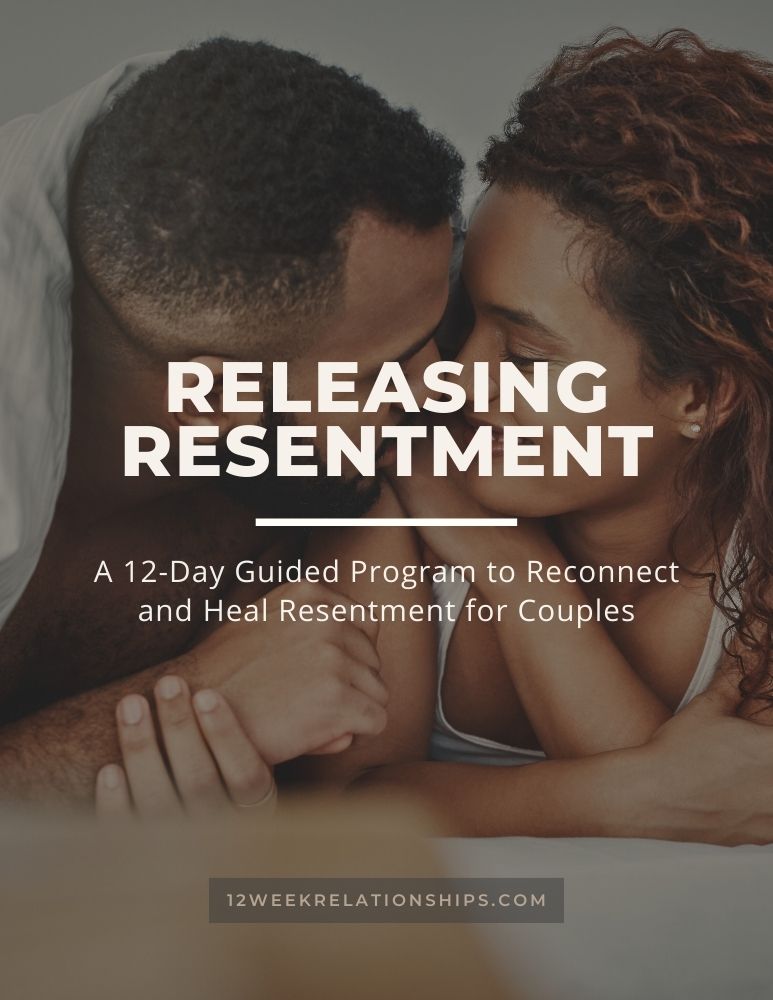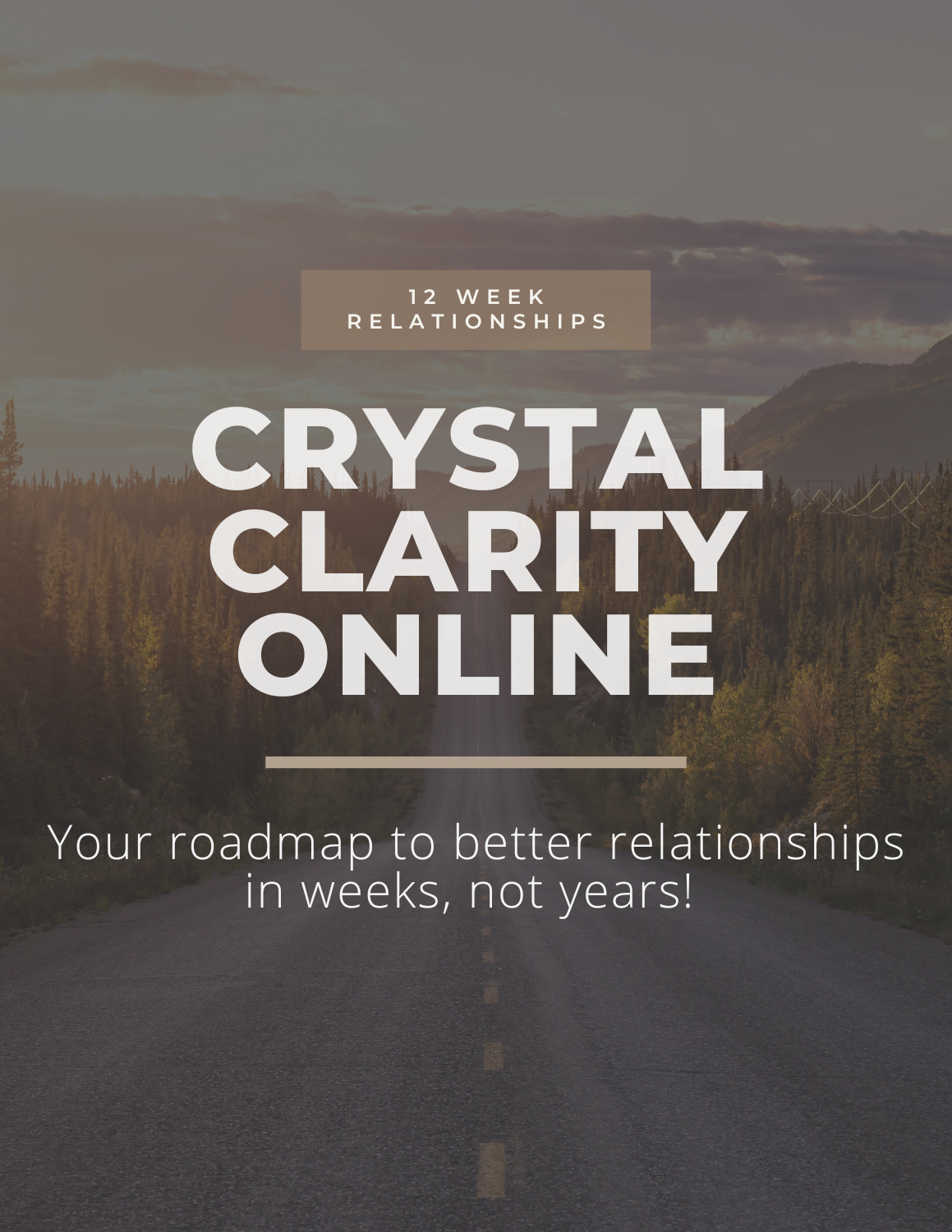Contempt in relationships is not only destructive, it's the single biggest predictor of relationship failure.
It is a pervasive feeling of disrespect, anger, and disapproval that goes beyond just feeling frustrated with your partner. It's also one of the most critical areas that we focus on when it comes to our 1:1 Coaching Clients.
In this article, we will explore the causes of contempt in relationships, the signs that indicate its presence, its effects, and solutions to prevent its spread. Oh, and while we're going to speak mostly of marriage and partnerships within this article, what we're about to discuss applies to ALL relationships.
First...
What is Contempt in Relationships?
Side note, here's the TWR Podcast episode on this topic if you'd prefer to watch/listen. Otherwise, you can keep reading the article below.
Within our relationship framework, the key component of Desire or the "want" for ANY relationship is having a high sense of Regard for someone. Regard defines the healthy sense of respect and admiration that's needed in order to feel Desire. Whether we're talking about a friendship or romance, you're going to struggle to maintain Desire when you have little or no Regard for the person.
If you put Regard on a spectrum, on the right you'd have a high sense of Regard, in the middle you'd have little or no Regard, and on the extreme left you'd have contempt.
Contempt goes beyond having no Regard for someone. Contempt is an actively toxic dislike and feeling of disrespect that's centered around one's anger and resentment toward someone.
It's more than just feeling frustrated or angry with your partner. It's a feeling of anger and resentment that applies to everything your partner has done, and everything they have yet to do.
Per the Gottman Institute, contempt is the number one predictor of divorce.
We'd go further to say that contempt within any relationship is the number one predictor of relationship failure, period. Whether we're talking about a long-term friendship or family relationship, it's virtually impossible to maintain Desire or the want for a relationship when contempt exists.
Where you feel contempt, you simply won't WANT a relationship.
This is why Regard sits at the top of our relationship framework as the key component of Desire. Because if Regard is damaged, lost, or replaced with contempt; it's the first component of the relationship that must be repaired.
What Does Contempt Look Like?
Contempt can show up in a number of different ways.
It's crucial that you quickly identify these markers in order to immediately start working on repairing contempt before it festers and continues to damage the relationship.
Here are some of the most common indicators of contempt within the context of marriage/partnership (although again, most of these markers apply to ALL relationships).
Dismissive or belittling language
- "You're so dumb. Seriously, this is so simple, how do you not get it?"
- "You're such a slob, I can't stand living with you."
- "You're so lazy. I honestly don't know how you manage to get anything done."
Sarcastic responses to questions
- Partner A: "What are you doing later?"
- Partner B: "Anything that's not hanging out with you, haha."
- Partner A: "Can you please make sure you arrive on time to pick me up from work?"
- Partner B: "Sure, I'll arrive on time just so I can sit around and wait for you."
Jokes that are half-truths
Someone asks the couple, "What do you guys do for work?" One responds, "I'm a doctor, and he works on spending my income full-time, haha!"
Eye rolling, sneering, or dismissive body language
Physical distance, feeling repulsed by touch and affection
Stonewalling which includes:
- Silent treatment
- Walking out in the middle of a conversation
- Shutting down emotionally
- Ignoring the other person
Criticism and blame
- "All you do is complain, why can't you be more positive?"
- "You just sit around all day, why don't you actually do something worthwhile."
If you see these markers, address them quickly!
Because if not, they lead to a number of immediate consequences which we'll discuss next.
Effects of Contempt in Relationships
The obvious effects of contempt are an immediate and ongoing deterioration of trust and intimacy. Within the relationship, contempt increases conflict, tension, and emotional disconnection. You of course also know how it leads to relationship failure (divorce, separation, etc).
But here's what you might not realize.
Contempt is an internal poison that will negatively impact your mental and physical health.
Contempt is the best indicator of an unhealthy relationship. From multiple points of clinical research, we now know that an unhealthy relationship can create a variety of health consequences including:
- Anxiety and depression
- High-stress levels
- Insomnia and fatigue
- Weakened immune system
- Substance abuse
- Eating disorders
- Cardiovascular disease
- Chronic pain/inflammation
If only it ended there.
Dr. Gabor Mate wrote a beautiful book called, “When the Body Says No.”
It’s a compilation of all the newer research and studies that are showing how stress, anxiety, and repressed emotions resurface in the body as long-term diseases and illnesses. This field of study is known as psychoneuroimmunology and it studies the connection between physical and mental health.
Within the book, Dr. Mate cites study after study that demonstrates how our emotional state leads to autoimmune diseases like heart disease, autoimmune disorders, and even cancer.
Guess what is one of the most significant factors in our emotional state?
Our relationships!
Guess what an unhealthy relationship filled with contempt creates?
Chronic stress and anxiety!
The effects of contempt are so far-reaching that it's virtually impossible to overstate its consequences. Consequences that extend far beyond simply the relationship at hand.
This then begs the question, what causes contempt?
Causes of Contempt in Relationships
Contempt can come from a number of factors.
- Communication problems
- Power struggles
- Resentment
- Lack of empathy
- Unresolved conflicts
- Disrespectful behavior
- Etc
But from our research and clinical experience we find that contempt is usually born of ONE specific thing...
Contempt comes from a misalignment in Core Values.
You have certain beliefs and values that are not only important to you, but also guide your behavior and decisions on a day-to-day basis. We call these Core Values.
When someone acts in support of your Core Values, you gain Regard for them.
When someone acts against your Core Values, you lose Regard for them.
Here's an example:
Let's say that one of your primary Core Values is what we call Kindness & Compassion. At your core, you believe that ALL of us deserve love and empathy.
Now let's say that you marry a man who's charismatic and charming. In fact, one of the things you were attracted to most was his confidence and strength of resolve.
With time though, you begin to realize that he's most definitely not a kind person. You first noticed this during your engagement period, when he was kind of rude to people that he didn't know. You brushed it off though thinking that with time he'd mature and change. Now that you're married, if anything you notice that it seems to be getting worse.
Each day his behavior forces you to lose a little bit of Regard for him.
At a restaurant, he makes fun of the wait staff when they make a mistake. At home, he leaves his clothes and things around the house expecting that you'll pick them up. Whenever he asks you to do something, there's no empathy or understanding when it comes to your schedule. Throughout his behavior every day he's showing you that he not only lacks kindness but also has little compassion or empathy for things outside of his world.
These little daily disappointments add up. Day by day you lose a little more Regard until one day you realize that not only is your Regard lost, you have nothing but contempt left for this person.
Yes, we do see clinical examples where contempt is created from specifically bad behavior.
But more often than not, contempt is created over time through actions that betray our individual Core Values. What starts as a relationship that's filled with healthy Regard is eventually eroded until nothing but contempt remains in its place.
The solution? Aligning your Core Values!
Solutions for Contempt in Relationships
When it comes to looking for solutions to contempt, we divide the effort into two categories:
Short-term solutions and long-term solutions.
Short-term solutions are what we call "relationship triage." This is the emergency work that's necessary to just stop the bleeding. While in the process of coaching/therapy, couples in an unhealthy relationship will often tend to continue to damage their relationship. Our first goal, stop the bleeding. We need them to stop doing the very things that are damaging Regard or even worsening the contempt that they have for one another. In this short-term triage frame of mind, we're looking to:
- Improve communication
- Practice empathy
- Learn active listening
- Show appreciation
- Cultivate positive interactions
However, none of these short-term solutions are real solutions. They're more like bandaids or sutures that we can use to stop the bleeding. They don't actually solve the underlying issues long-term.
This means that if a couple is purely focused on empathy, communication, and other tools for conflict resolution; while they might experience some temporary relief, there will be no long-term change.
In short, this is one of the biggest reasons why relationship therapy tends to fail 85% of the couples it serves (Roesler, 2020). Because when it comes to counseling and therapy, most solutions tend to be symptom-oriented. This means that once therapy stops, the likelihood of relapse is extremely high since the underlying problems were never resolved.
For us, once the "bleeding" has been stopped, we move immediately to long-term solutions. For TWR coaching programs there are three specific steps to this process:
- Understanding one's attachment wounds
- Processing unresolved trauma
- Seeking to understand and align Core Values
Steps one and two are about resolving past pains that are negatively affecting your relationships today. Step three is about understanding and aligning Core Values moving forward.
We call this past/future model Core Value Focused Therapy, or CVFT. It's what's enabled our clients to finish TWR Coaching Programs with a 99% success/satisfaction rate.
Conclusion
Contempt in relationships can be a destructive force, but it is not inescapable.
By recognizing the causes, signs, and effects of contempt, and taking proactive steps to address it, couples can strengthen their relationship and create a positive and healthy environment for growth and intimacy. Remember that contempt is not just an emotion, it is a choice. By choosing to build a relationship based on aligned Core Values, couples can create a strong and enduring bond that can weather the challenges of life.
If you're in this space, we'd encourage you to sign up for a FREE 15-minute consult for 1:1 coaching.
Regardless of what you might have tried in the past, our approach to relationship coaching will cut straight to the core of your relationship issues and goals.












